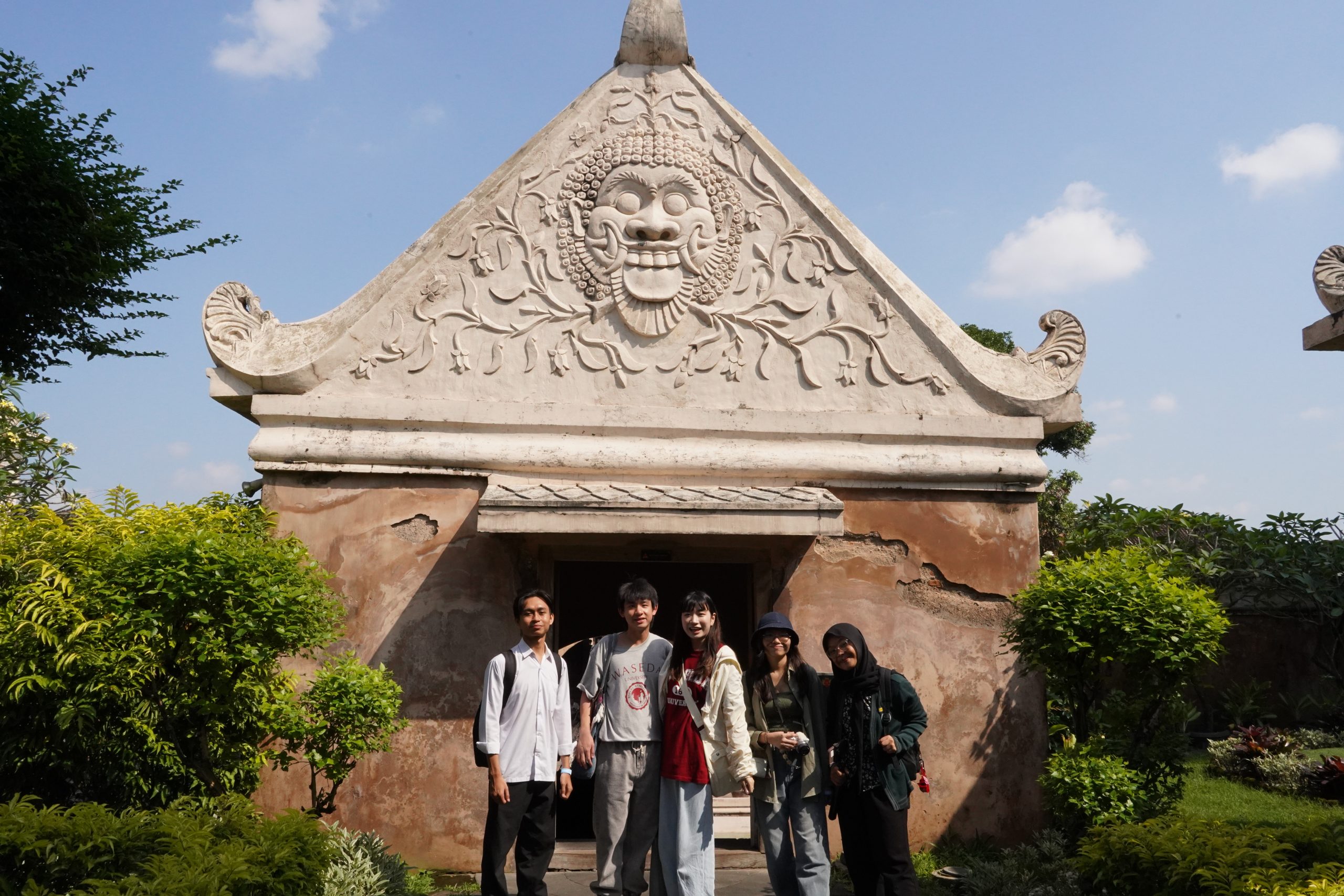
Yogyakarta, 11/7/2025 – Yogyakarta has once again become a magnet for cultural learning, this time for students from National Chengchi University (NCCU) who are currently undergoing an internship program at the Faculty of Cultural Sciences, Universitas Gadjah Mada (UGM). Rather than simply sitting in an office, they are invited to explore the vibrant life of the local community and to understand the richness of culture from its source.
The journey began at Pasar Ngasem, one of the oldest traditional markets in Yogyakarta. Here, the students witnessed firsthand the interactions between vendors and buyers, the variety of local food ingredients, and the lively and dynamic atmosphere of the market. For many of them, this was their first experience seeing a traditional market that is vastly different from those in their home countries.
The adventure continued to Tamansari, the former royal garden of the Yogyakarta Sultanate, which is rich in historical and architectural value. Amidst the corridors and bathing pools filled with stories, the students not only listened to tales of the past but also reflected on how culture and history continue to thrive in the public spaces of this city.
Interestingly, on their way back from Tamansari, the group passed by a location where shadow puppet crafts are produced. Their curiosity led them to stop. At this site, they not only observed artisans at work but also received direct explanations about the world of wayang—ranging from the types of characters, the philosophy behind the stories, to the tools and materials used in the production process. Some even had the opportunity to hold the carving tools and buffalo leather used in the crafting process.
“This is a rich experience. I didn’t expect that Wayang Kulit has such deep meanings and that its production process is so intricate,” said one participant from Taiwan.
This activity serves as evidence that learning about culture cannot be confined to theory alone. By immersing themselves in places that are integral to the lives of the community, foreign students not only gain new knowledge but also emotional experiences that leave a lasting impression.
Through small steps like these, cultural exchange becomes more vibrant—bringing closer what is distant and uniting what is different in experiences that enrich both sides. The partnership between civil society and educational institutions plays a crucial role in facilitating such meaningful interactions.
As the students continue their journey, they are not just learning about Indonesian culture; they are also contributing to the preservation and appreciation of cultural diversity. This aligns with the Sustainable Development Goals (SDGs), particularly in promoting inclusive and sustainable cultural practices.
In conclusion, the experience of NCCU students in Yogyakarta highlights the importance of direct engagement with local culture. It emphasizes that understanding and appreciating cultural diversity requires more than just academic study; it necessitates active participation and genuine interaction with the community.


